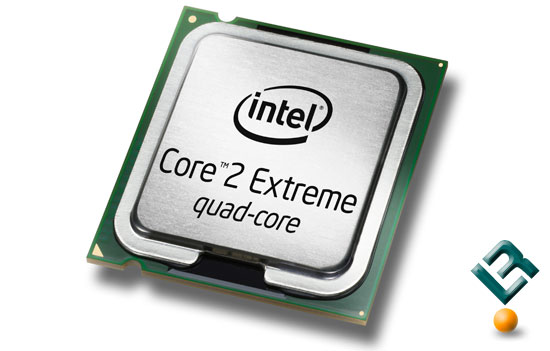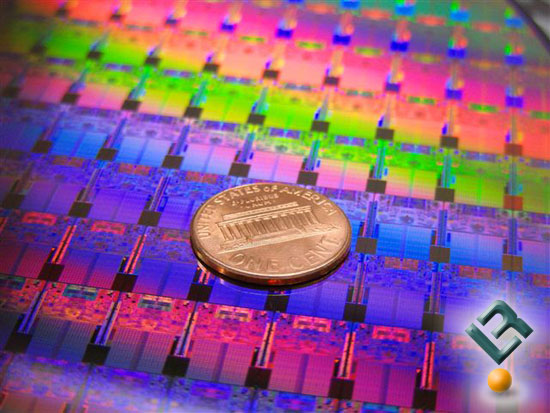Intel Core 2 Extreme Processor QX9650 Review
Intel Launches 45nm Desktop Processors – QX9650 Leads The Way
It has been a long time in the making, but the Intel Core 2 Extreme Processor QX9650 has finally arrived! The Intel QX9650 has been talked about for many months, so it shouldn’t be anything new to you, but the embargo on the performance numbers has finally lifted. If you want to purchase one of these you’ll still have to wait till the official launch date of November 12th, 2007. Intel hasn’t said a word about pricing, but we are hopeful that it will launch at the same price as the Intel QX6850, which was $999.

The Intel QX9650 has a 3.0 GHz core frequency, a 12MB chunk of L2 cache, was built on the 45nm process and features a new SSE4 instruction set. Since the clock frequency hasn’t changed the significant differences is the extra 4MB of cache and the fact it was done on the 45nm process. It is the worlds first 45nm, high-K metal gate lead-free desktop processor. If you are already a bit lost please feel free to go back and reference some of our previous articles on Intel’s 45nm processors. It’s interesting to see that Intel previewed us a 45nm Yorkfield at 3.33GHz in April of 2007 and now six months later they are releasing the same part at just 3.00GHz. That might just go to show how much overclocking potential one of these processors might have.
- Intel Moves Closer to 45nm Penryn Processor Production
- Intel Penryn and Nehalem 45nm Processor Update
- Intel Penryn 3.33GHz Processor Benchmarks
- Intel Shows Off 8-Core 45nm Penryn Benchmarks
- Intel V8 Skulltrail Yorkfield System Preview
- Intel Beats AMD to Lead-Free Processors

Built on the state-of-the-art Intel 45nm manufacturing process, this quad-core Intel Core 2 Extreme processor is designed to deliver outstanding capabilities on both todays and tomorrows workloads. Intel is using the element Hafnium and other materials to reinvent parts of the now 60-year old transistor, meaning this launch is a big step forward for processor design technology. This is also the first mass production 45nm desktop processor that Intel has brought to market and boy is it small. With a die size of just 214mm2 and 820 million transistors it is smaller than both a penny and it’s predecessor the QX6850, as it had a die size of 286mm2 with 582 million transistors. The TDP rating (Thermal Design Power) for the chip hasn’t changed even though the L2 cache size has increased. The Intel QX9650 processor will have a TDP of 130W, which means cooling requirements have not changed. All you need to upgrade to one of these new 45nm processors is make sure you have (or get) a motherboard and chipset capable of supporting the newer 45nm processors, which means Intel P35 Express and Intel X38 Express based desktop motherboards.
Intel Core 2 Extreme Processor QX9650 Specifications:
- 3.0 GHz, 1333 FSB, quad-core
- 45nm high-K metal gate transistor technology
- 12MB L2 cache
- SSE4 instructions
- 820M transistors
- Total Die Size – 214mm2
- LGA775 socket, 130W TDP, C-step
- Overspeed protection removed
- Supported by either Intel P35 or Intel X38 chipsets
- MSRP – $999

The view of the Integrated Heat Spreader (IHS) hasn’t changed with the Intel QX9650, but if you flip it over and look at the LGA775 socket side some differences can be noted between recent cores. In fact we will be testing the very three processors pictured above (Intel QX6950, QX850 and E6750) along with the AMD Athlon 64 X2 6400+ to see how the new Intel Core 2 Extreme Processor QX9650 processor does against other high-end offerings from AMD and Intel on Windows Vista Ultimate 64-bit.

Comments are closed.